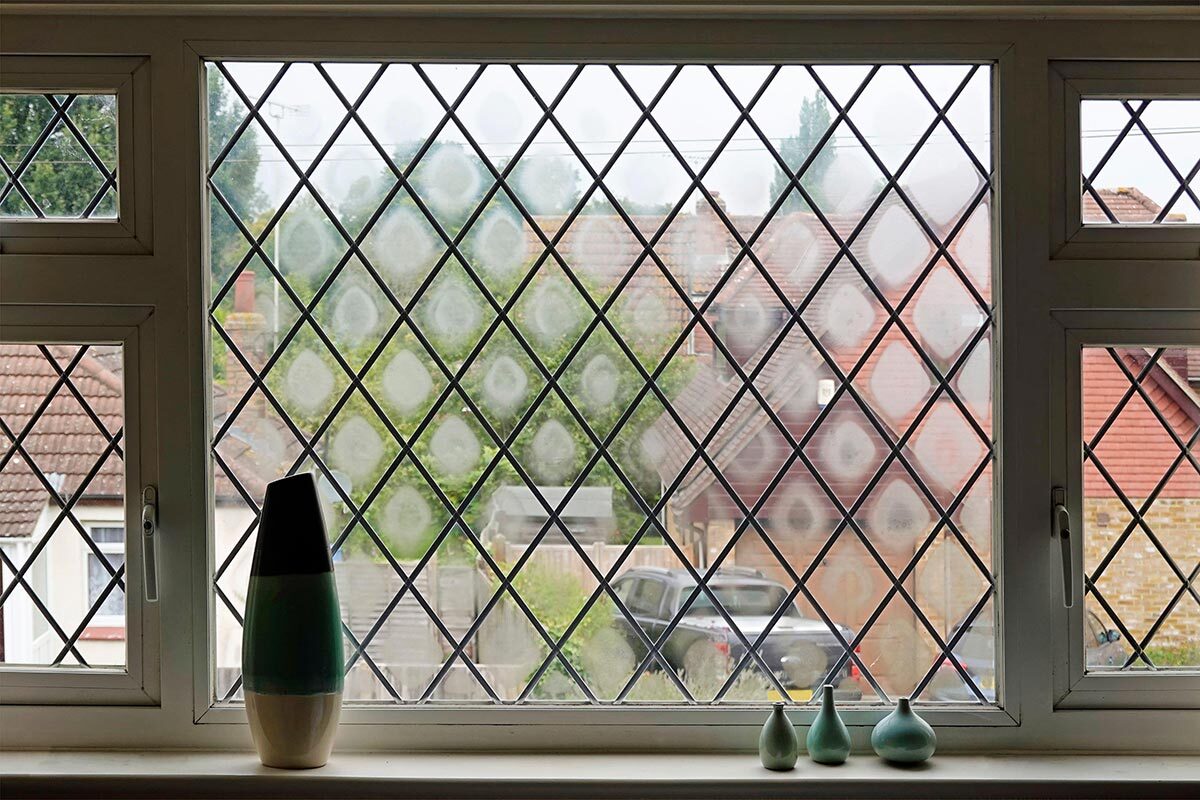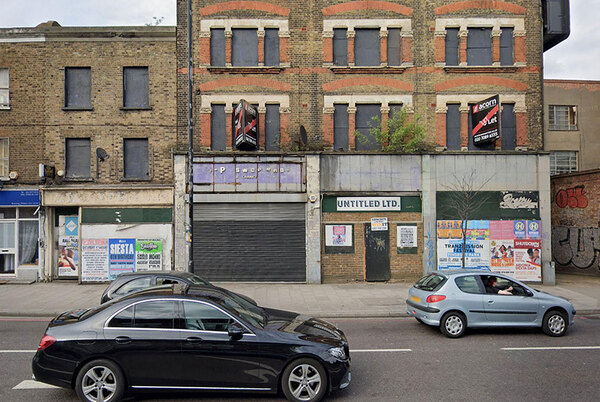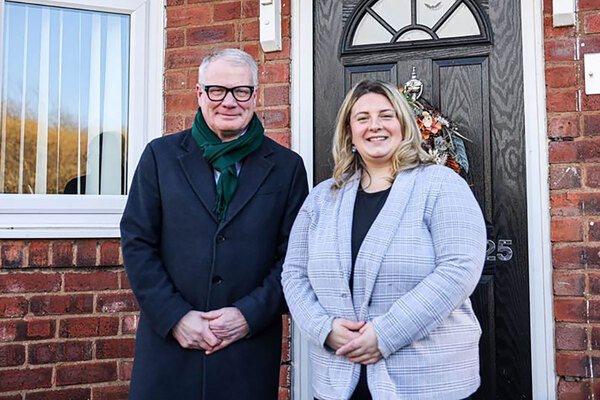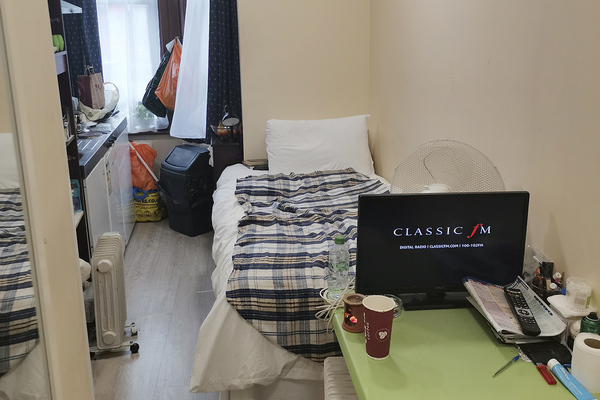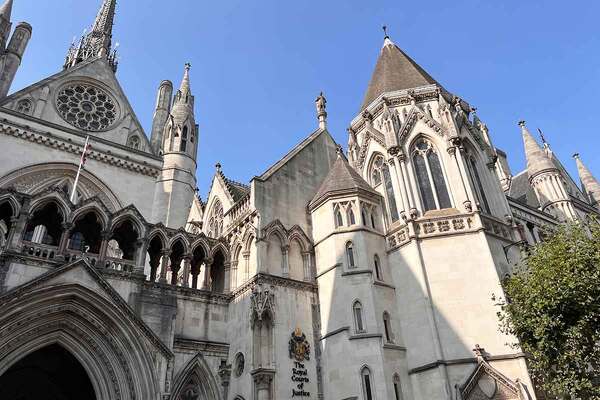You are viewing 1 of your 1 free articles
Councils serving improvement notices in less than 5% of disrepair reports
Great Manchester councils are only serving landlords improvement notices in between 3.9% and 4.9% of disrepair reports from private tenants, despite the notices providing protection from retaliatory evictions, according to a new research report.
The research, by Housing Justice Network partners the Greater Manchester Law Centre (GMLC) and Greater Manchester Tenants Union (GMTU), found that between February 2022 and February 2023, councils received 2,283 reports from private tenants seeking help for disrepair in their homes, but only served 90 improvement notices – representing 3.9%.
According to the report, Tackling disrepair: why enforcement matters, only one was served to a social landlord.
The report analysed the ways in which councils in Greater Manchester enforced tenants’ repair rights through their local enforcement teams.
The figures are based on Freedom of Information requests sent to Bolton, Rochdale, Oldham, Salford, Wigan, Bury, Tameside, Manchester, Trafford and Stockport councils.
The number of private reports will be higher because Manchester, Trafford and Stockport councils did not separate private and social tenants in their responses.
In total, the three councils received 1,794 disrepair reports and served 108 improvement notices, as defined by the Deregulation Act 2015 – equating to 6%.
If all of the above related to private tenant reports, it would bring the overall percentage of improvement notices to 4.9%.
Improvement notices, which give landlords a period of time to deal with disrepair before the council can take legal action, can be served by local authorities when a private or social tenant makes a report to them.
They provide protection to tenants from retaliatory evictions. Provisions in the Deregulation Act 2015, which came into force in October of that year, mean that a landlord cannot serve a Section 21 notice unless they have complied with certain legal responsibilities.
The aim was to tackle the issue of tenants not complaining about living in poor conditions for fear of ‘revenge’ evictions.
However, the law only applies if the council has served the landlord with an improvement notice.
GMLC and GMTU argued that if private tenants do not have the funds to bring a legal case, they have very little power to do anything about disrepair if their landlord fails to address it.
No-win, no-fee firms often prefer to take cases against social landlords over private ones as they are easier to recoup funds from.
People with no recourse to public funds are even more at risk as they have no access to benefits or homeless services.
As well as this, there is currently no Housing Ombudsman for the private rented sector (PRS), though one has been proposed in the Renters’ Reform Bill.
A ban on Section 21 no-fault evictions is also included in the bill, but they are still legal despite the ban being proposed by then-prime minister Theresa May more than four years ago.
The organisations are calling on the councils to improve and increase their enforcement activities to improve conditions for tenants. Their research found that in total, 4,399 reports of disrepair were made across all Greater Manchester boroughs by private and social tenants.
The six councils that provided specific figures for reports about social landlords received 320 from social tenants.
The three councils with the highest number of reports of disrepair were Manchester (1,345), Bolton (604) and Rochdale (554). Wigan had the lowest number of reports (142).
Councils – excluding Trafford and Stockport, which did not supply data – carried out 2,665 inspections related to disrepair reports.
Overall, where councils split the data between social and private tenants, local authorities were far more likely to get reports from private tenants.
For example, in Bolton, which had the second highest number of reports of disrepair, 11.4% of reports were from social tenants.
Tameside had the highest proportion of social tenants reporting disrepair, at 32.2% of all reports.
However, according to the report, this could be affected by the fact some councils included guidance on their websites pointing social tenants to the ombudsman or their own provider’s complaints process.
Bury claimed that no social tenants had reported disrepair.
“This may be affected by the fact the guidance on making a report on their website does not appear to mention that it is possible for social tenants to report disrepair to the council, as only privately rented housing is mentioned,” the report said.
Manchester Council served the most improvement notices at 84, while Rochdale and Bolton both served 29 notices each. Stockport, Wigan and Tameside served the fewest at three, two and none respectively.
The report makes several recommendations, with the overall aim of standardising best practice across Greater Manchester councils.
They include local authorities publishing a “publicly accessible and specific” written policy on the enforcement of disrepair for both private and social tenants, where this is not already in place.
The report recommended councils to review processes for accessing enforcement services to ensure they are “accessible and easily obtained”, especially for people with literacy, digital literacy or language barriers.
Suggested improvements include having a manned phone line that can be called to report disrepair, rather than necessitating use of an online form, and putting this phone line on councils’ websites in an easily accessible place.
GMLC said councils could also launch a public campaign to raise awareness of enforcement procedures, ideally in multiple community languages that are relevant to each borough.
It said local authorities could reduce the number of steps in any enforcement policy required before tenants are told they can make contact with their council, for example getting rid of the expectation of multiple attempts at contact with a landlord in writing.
The report also recommended that councils improve recording practices, such as by keeping better records of demographics of tenants experiencing certain disrepair issues, the landlords that are coming up repeatedly in reports of poor housing conditions, outcomes for tenants and whether repairs are completed, and tenant feedback on the accessibility and effectiveness of enforcement services.
Councils should work with other local authorities to identify landlords which may be breaching their repairing obligations to tenants across different boroughs, according to the report. They should also review and improve policies on the use of formal enforcement to increase penalties for landlords that fail to complete repairs and should standardise the use of improvement notices.
The report recommended looking at staffing levels, training and reviewing ways to fund the expansion of enforcement activities, such as through better use of fines and enforcement income and expansion of selective licensing schemes.
The report also includes case studies of tenants living in horrific conditions, including a live rat falling from a hole in the living room ceiling next to a child.
Kate Bradley, housing caseworker and campaigns officer at GMLC, said: “We see tenants all the time who have been living with quite serious disrepair, who just don’t have an option available to them to obtain enforcement, unless the council steps in.
“And the result of that is that on many surveys private housing stock in this country comes out as having the worst disrepair of any sector.”
She added that private landlords are “largely getting away” with not addressing disrepair or not seeing it as their responsibility.
“Council enforcement is important because it holds landlords to account for disrepair that they haven’t been dealing with.
“But it also hopefully delivers on some of the improvements that are needed in properties to make them liveable and safe and less likely to cause long-term health problems for the tenants living inside,” she said.
Councils’ responses
Manchester City Council spokesperson: “We always take housing disrepair seriously and we take a robust approach to enforcement action where appropriate to ensure the best outcome for our residents.
“This means working across both the social housing and private sector to improve standards and tackle issues where they arise.
“In response to resident requests in the past year, we have inspected 1,580 properties and issued 160 enforcement notices [includes 84 as defined by the Deregulation Act 2015] and 27 prohibition notices.
“To develop our enforcement work further, we have also worked closely with the GMCA [Greater Manchester Combined Authority] to secure funding to increase training for our housing compliance and enforcement team to enhance enforcement activity, but also to increase the capacity of our team, including new engagement officers who will act as first point of contacts to support residents through the complaints process.
“This is particularly important in cases where English is a second language or the resident has other vulnerabilities that need to be considered.”
Wigan Council spokesperson: “As a council we work proactively with local landlords to ensure they are keeping their properties at a good standard, and we provide support and advice via our landlord hub. As a result, we have the lowest number of disrepair complaints in Greater Manchester.
“There is, of course, always work to do – and we are not complacent. We will always challenge rogue landlords and carry out enforcement where required.
“Through additional funding and dedicated staff training, we are committed to tackling disrepair and driving up standards across the sector, to ensure our residents are protected.”
Trafford Council spokesperson: “Trafford Council takes housing disrepair very seriously and we won’t hesitate to take formal action where it is needed through our corporate enforcement policy.
“However, we also work directly with private landlords to improve properties without the need for using improvement notices.
“We have strengthened our team in housing enforcement, but cuts to council budgets also mean we still have limited resources available to tackle the number of complaints we receive from private renters.”
Oldham Council spokesperson: “Housing disrepair has a significant impact on our communities.
“Oldham Council will investigate and take any necessary appropriate action, including formal and informal action.
“The council operates a Selective Licensing scheme in certain areas of the borough as a proactive intervention to improving the private rented sector in Oldham.”
Sign up for our regulation and legal newsletter
Already have an account? Click here to manage your newsletters
Sign up to the Regulation and Governance Conference
A brand new housing sector conference shining a light on changing regulation and best practice governance – from financial and ethical governance, to ensuring a fair and good service for tenants.
Bringing together 250 UK housing governance professionals in one setting for the first time, this event is an unmissable opportunity to kick-start critical discussions around regulatory policy, tenant satisfaction, accountability, transparency and financial risk management.

